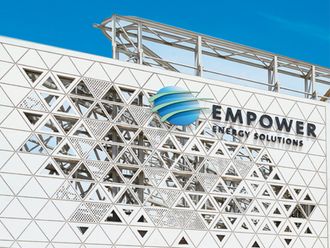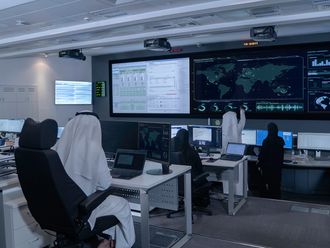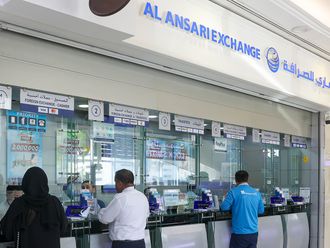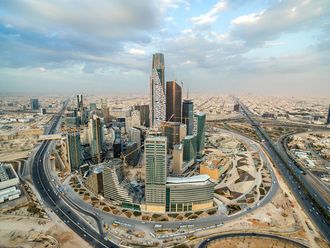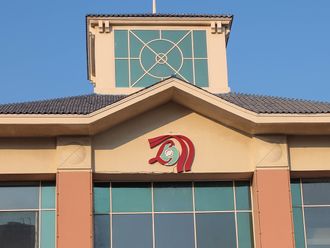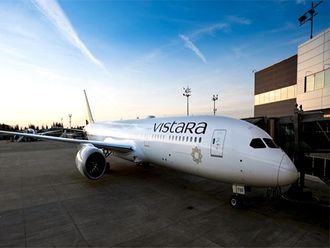Dubai: Emirates Steel, one of the largest steel industries in the Gulf, said has commissioned its Dh2.38 billion ($6.5 million) Heavy Section Mill.
The steelmaker said it can now produce large-size sections, beams, columns and sheet piles.
"This is the latest achievement in the completion of the expansion programme at our integrated complex in Musaffah," said Suhail Al Ameri, chairman of Emirates Steel.
"In support of Abu Dhabi's economic ‘Vision 2030', our expansion programme has been designed to give Emirates Steel a competitive advantage over its international competitors by giving it better access to local energy resources and utilizing state-of-the-art technologies. Now that Phase 2B is complete, we will be the only producer of jumbo and heavy sections in the Middle East and North Africa (Mena) region and will be able to offer drastically-reduced lead times and an improved product offering in terms of piece count and cut-to-length services," Al Ameri added.
The Company had launched in January 2006 a two-phased expansion programme worth $2.45 billion. Phase 1 was completed in June 2009, Phase 2A in March 2011 and Phase 2B in December 2011.
The new Heavy section Mill will be integrated with the second 1.4 million tonnes per annum (MTPA) capacity Steel Meltshop and the associated Direct Reduction Plant already started successfully in autumn 2010.
Emirates Steel's Phase 2A, which consists of a 1.6 million MTPA Direct Reduction Plant (DRP) and a 1.4 million MTPA Steel Making Plant (SMP), has significantly increased the Company's DRI (Direct Reduced Iron) capacity to 3.2 million MTPA and steelmaking capacity to 2.8 million MTPA. This elevated Emirates Steel into one of the largest DRI producers in the Middle East region.
Phase 2 DRP and SMP, which are twin plants of Phase 1 assets, were commissioned on schedule in March 2011, thereby significantly reducing the associated technology and construction risks and providing significant synergies to the Company in terms of the learning curve.
Cold commissioning of both plants had commenced in October 2010. According to Al Ameri, Emirates Steel's focused and fast-paced approach to growth has allowed the Company to edge ahead of schedule in its expansion plan, bringing the company increasingly closer to realizing its final objectives.
Constructed by Italy's Danieli, the Emirates Steel Heavy Section Mill will produce parallel-flange beams, columns and bearing piles with up to 1,016 millimeter web depth and 419 flange width, up to 430 millimeter parallel flange channels, 250 millimeter angles, 750 millimeter U-sheet piles and 630 millimeter Z-sheet piles using 350x220 millimeter conticast blooms and up to 1050x460x120 millimeter beam blanks as starting material.
"Both the expansion plan and overall growth strategy of Emirates Steel are in line with the Government's long-term plans for the development and diversification of the Emirate's economy. The expansion is also part of the overall backward integration plan, which will ensure a competitive market position for Emirates Steel," said Al Ameri. The plant's new facilities together with its planned further expansions will see Emirates Steel increase its production to around 6.5 million tons per annum within the next four years.
More than 30 per cent of the project team members, who worked on the two-phased expansion, were UAE engineers and technicians. Al Ameri believed that "Emiratization is one of our highest priorities and we remain dedicated to contributing to this important government initiative". Now that Phase 2B is complete, an estimated 2,000 more jobs will be created in the country either through downstream operations or by suppliers.
Saeed Al Romaithi, Emirates Steel's Acting CEO, said, "Besides construction, other factors are contributing to the growth of the steel industry in the country. These include cheap and reliable gas and energy supply, growing investment in the oil & gas and petrochemical sectors, industrial growth and rising income level."
"This does not mean that demand for steel has not contracted on account of the global economic crisis and the turmoil in the region; a number of projects have been placed on hold or cancelled, but construction projects, mainly in Abu Dhabi, are currently the key driving force behind the steel industry growth. "This trend and other government initiatives will play a positive role in promoting reforms and increasing competitiveness of our steel industry in the coming years," Al Romaithi pointed out.
Demand for heavy sections in the Gulf Cooperation Council (GCC) region is expected to double by 2015, according to press reports.
"Once up and running, our Heavy Section Rolling Mill will establish the Company as the leading manufacturer and supplier of structural steel in the Middle East region and a center of excellence for the effective use of metal in construction," Al Romaithi pointed out.
"By offering a wide range of structural products, the mill will be able to meet its customers' differing structural steel needs and maximise their design effectiveness. We have made a significant investment in structural steel manufacturing technology, which will put our heavy sections mill amongst the most advanced in the world," he added.
"Our structural steel will be essential to the local and regional markets. The growing number of projects in the GCC working on the development of infrastructure, industrial plants, power transmission towers, bridges, sea ports and high rise towers all require the new products we will be able to supply," Engineer Ahmed Al Dhaheri, VP of Projects, pointed out.
These construction projects will demand a large tonnage of heavy sections, Al Dhaheri asserted. According to Steel Business Briefing, demand for medium and heavy sections in the Middle East is forecast to reach 4.3 million tons in 2012, with Saudi Arabia and the UAE being the biggest consumers. Demand is currently met by imports mainly from China, Korea and Eastern Europe. The GCC's total steel demand is 20 million tons per year, compared to a capacity of 12 million tons per year.


